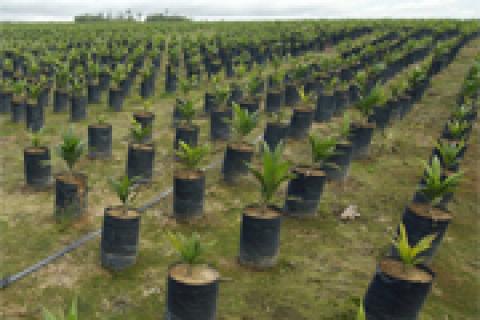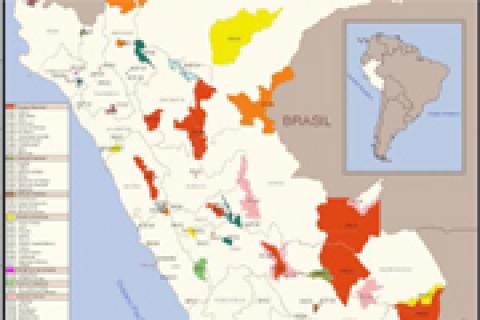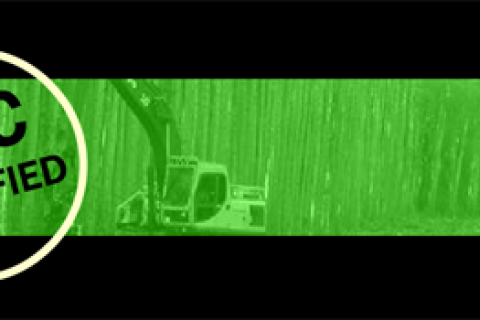In order for vast extensions of industrial plantations to be viable in Brasil direct interactions where established between the government, companies, banks, universities, media, as well as with international and financial institutions, producers and buyers. A broad political orchestration resulted in the creation of a number of mechanisms related to legal, taxation, financial, technical, scientific, agrarian and logistic support. In the same manner articulations opposing those policies increased as monocultures expanded.
Other information
The invasion of local peoples’ territories by Aracruz Celulose S.A.’s agro-industrial project, established in the sixties and seventies in Espirito Santo, caused enormous material and symbolic losses to the indigenous and quilombola peoples. Some are irrecoverable.
Between 2001 and 2005, plywood panels manufactured by Pizano S.A., one of the largest timber companies in Colombia, could be purchased in the U.S. The panel was manufactured in part using timber from one of the plantations certified by Forest Stewardship Council (FSC), and in part from the natural forests in northeast Colombia, forests in which guerrilla organizations, paramilitary groups and the army fight for control of the territory and its natural resources. Consequently, these plywood panels were stained with blood.
Earlier this year, in an attempt to discourage the use of plastic bags, the Kenyan government slapped a 120 per cent tax on plastic. While the tax may look like an environmentally friendly decision, it could result in severe impacts on the environment. One of the beneficiaries of the decision will be the partly government-owned Pan African Paper Mills.
For years now WRM has been documenting the social and environmental impacts of monoculture tree plantations. However, so far we had no information on the starting point in this chain: the nurseries where millions of plants intended for plantation are produced. Recently research has just been concluded on the labour conditions and use of agrochemicals in the nurseries of the two main forestry companies in Uruguay certified by the Forest Stewardship Council (FSC): Eufores (Ence-Spain) and FOSA (Metsa Botnia-Finland). (1)
Position Paper of the Global South on Food Sovereignty, Energy Sovereignty and the transition towards a post-oil society.
Quito, September 2007
Only available in Spanish -
Nota que da cuenta de la indudable existencia de grúpos indígenas nómadas en aislamiento voluntario en la Amazonía sur oriental del Perú - Intendencia de Áreas Naturales Protegidas, Lima, setiembre 2007
Descargar como pdf
Press Release - September 17 - 2007
Very few studies have been undertaken on the health and safety of tree plantation workers around the world. In addition, this sector generally tends to be addressed as part of the larger sector of the forestry industry, which also encompasses logging and wood harvesting activities in natural forests.
In Uruguay we have entered the 21st century as witnesses to the transformation of the landscape throughout the length and breadth of the country. Plantations of eucalyptus and pine trees seem to have invaded every type of terrain. This geographical transformation has also had a direct social impact, affecting numerous aspects of life.
Since the mid 1980's there has been a global trend towards the outsourcing of labour-intensive aspects of the plantation timber production model. In South Africa, the timber industry has openly admitted that its main motive for replacing permanent employment of workers with contract outsourcing was to cut costs.
An article from Jennifer Mourin, deputy executive director of Pesticide Action Network’s regional office for Asia and the Pacific (PAN AP), referred to a situation which is hardly unique in the Malaysian oil palm sector: “Rajam worked as a pesticide sprayer on an estate earning a daily wage of RM18. The main pesticide she sprayed was paraquat [herbicide]. She was not provided any protective clothing such as boots, masks, gloves, goggles or apron.



